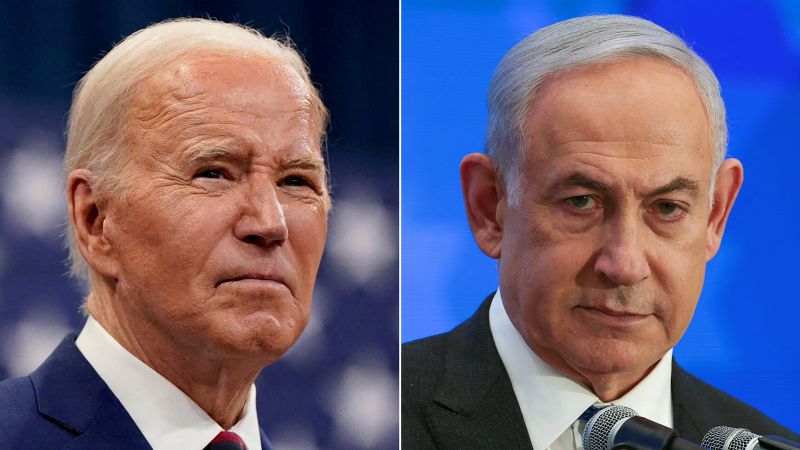US-Israel relations have reached a critical point where President Joe Biden has warned he would halt weapons shipments to Israel if it invades the Gazan city of Rafah, marking the most direct attempt to rein in its ally in a national security crisis since the Reagan administration. The statement sent shockwaves through US and Israeli politics and the broader global community. Washington is concerned that a full-scale Israeli incursion into Rafah would result in civilian casualties surpassing the already high numbers reported. This move has strained relations between Biden and Netanyahu and raised questions about potential US intervention in the conflict.
The civilian carnage in the Gaza war has led to outrage globally and pressure on Biden at home, particularly as he faces a tough reelection campaign against Donald Trump. Despite concerns from the US, Netanyahu’s government believes it must continue its assault on Hamas, which it claims is embedded in civilian areas such as Rafah. The eradication of Hamas may be crucial for Netanyahu’s political survival, further complicating the situation for US-Israel relations and Biden’s political standing within his own party.
Key questions arise following this development, including how Biden’s warning will impact Israel’s decision-making in Rafah and whether Israel will proceed with operations even without US support. The long-term implications of the rift between the US and Israel remain uncertain, as well as the potential impact on ceasefire negotiations and regional stability. Biden’s attempt to pressure Netanyahu could exacerbate domestic political challenges, particularly with progressive and Arab American voters who are concerned about the civilian cost of the conflict.
The strained relationship between Biden and Netanyahu reflects a low point in US-Israel relations and the diverging political interests of both leaders. Biden’s statement signals a shift towards protecting civilians and upholding moral values while ensuring US national interests are not compromised. Facing tight reelection dynamics and pressure from various voter demographics, Biden must navigate a delicate balance between supporting Israel’s security and addressing humanitarian concerns in Gaza. The president’s actions have drawn criticism from Republicans and created a challenging political landscape for his campaign.
Israel’s war cabinet is set to meet in response to Biden’s warning, potentially complicating the military strategy and global positioning of the Netanyahu government. Despite warnings from the US, Israel shows no signs of altering its plans and remains resolute in its defense efforts against Hamas. The backlash from Republicans towards Biden’s comments underscores the political dimensions of the conflict and the challenges facing the president as he deals with domestic and international pressures.
Biden’s decision to halt weapons shipments to Israel has drawn mixed reactions, with progressive Democrats praising the move as a step in the right direction. However, the political fallout from the conflict in Gaza could have lasting repercussions for Biden’s presidency and his reelection campaign. The crisis presents a complex and challenging situation for the president, with no easy solutions that would satisfy all parties involved. As he grapples with the implications of US intervention in the conflict, Biden faces tough choices that could impact his standing both at home and on the global stage.













